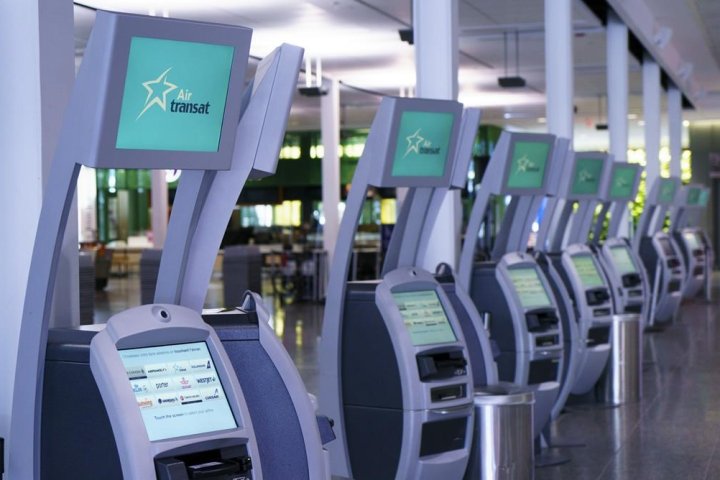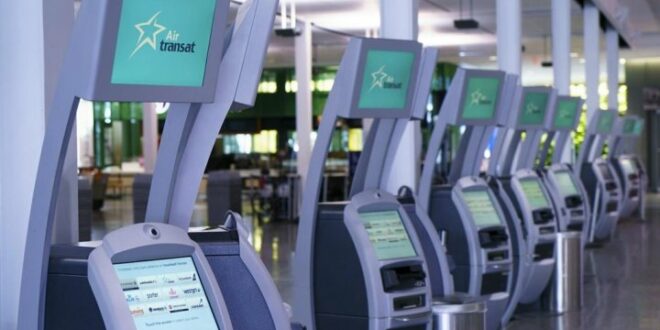
Skyrocketing jet fuel prices and COVID-19 measures ate into the profits of Transat A.T. Inc. in its second quarter, despite higher revenues as air travel began to rebound, sparking hopes of a turbocharged summer.
The tour operator saw its net loss attributable to shareholders swell 41 per cent for the quarter ended April 30, even as revenues were more than 47 times higher than a year earlier.
“`The cost of fuel rose sharply, without which we would have reported positive adjusted operating results in April,” chief executive Annick Guérard said in a statement Thursday.
She said consumers are ready to accept price hikes while the company has implemented a fuel hedging program to protect against significant increases during the summer.
The arrival of two new fuel-efficient Airbus A321neo jetliners this summer will also cut fuel costs.
North American jet fuel prices rose 124 per cent year over year to US$174 per barrel as of June 3, according to the International Air Transport Association. Spiking in March amid Russia’s invasion of Ukraine, the price has fallen 14 per cent over the past month.
Months earlier, the highly infectious Omicron strain prompted further border restrictions and another drop in travel bookings.
Transat cancelled nearly 30 per cent of its scheduled flights in January and February as a result.
However, the CEO said a recovery is now fully underway, with sales for summer trips now topping 2019 levels after trailing them between mid-December and the beginning of March.
In April, seating capacity hit two-thirds of pre-pandemic levels, with more than 80 per cent of those seats filled, Guérard said on a conference call with analysts.
“Our capacity for the summer is at about 90 per cent of 2019 levels” — only 75 per cent for its key transatlantic program, but nearly 100 per cent for sun destinations. “If this trend holds, we expect to see good volumes in the months ahead.”
There may be more bumps ahead as endless security queues and more flight delays at airports threaten to throw a wrench in plans ahead of peak travel season.
“We’ve had the delays at Pearson among other places — there are challenges in Europe as well. As demand for travel ramps up, Canada’s border policies and resources in airports … need to reflect this new reality,” Guérard told analysts.
She said it is “very difficult” for normal travel volumes to mesh with ongoing restrictions, such as random COVID-19 testing of international arrivals — a policy Ottawa has said will stay in place until at least June 30.
Foreign visitors must also continue to provide proof of at least two vaccine doses — unvaccinated Canadians who don’t can return home but must quarantine for 14 days. All travellers must also keep submitting their health information via the ArriveCAN app before their return.
Public health protocols mean customs agents now take two to four times longer than the typical 30-second processing time for international passengers, according to Canadian Airports Council interim president Monette Pasher.
The Canadian Air Transport Security Authority, which manages airport security screening, aims to boost the number of screening officers, with 400 more personnel in various phases of training to be deployed by the end of the month, Transport Minister Omar Alghabra has said.
Transat’s debt load is another obstacle after finishing the second quarter owing $1.78 billion, 11 per cent more than six months earlier.
“We are still carrying significant debt linked to the restarting of our operation,” Guérard said.
On Thursday, the company reported a net loss attributable to shareholders of $98.3 million or $2.60 per diluted share for the quarter. The result compared with a loss of $69.6 million or $1.84 per diluted share a year earlier.
Revenue totalled $358.2 million compared with $7.6 million in the same quarter last year when Air Transat, the company’s airline, suspended operations after Ottawa requested a suspension of travel to Mexico and the Caribbean as well as the adoption of new quarantine measures and testing requirements.
On an adjusted basis, Transat said it lost $2.95 per diluted share compared with an adjusted loss of $2.74 per diluted share in the same quarter last year.
The first figure fell 22 per cent below analysts’ expectations of $2.42 in losses per diluted share, according to market data firm Refinitiv.
[ad_2]You can read more of the news on source
 Travelsmart
Travelsmart



